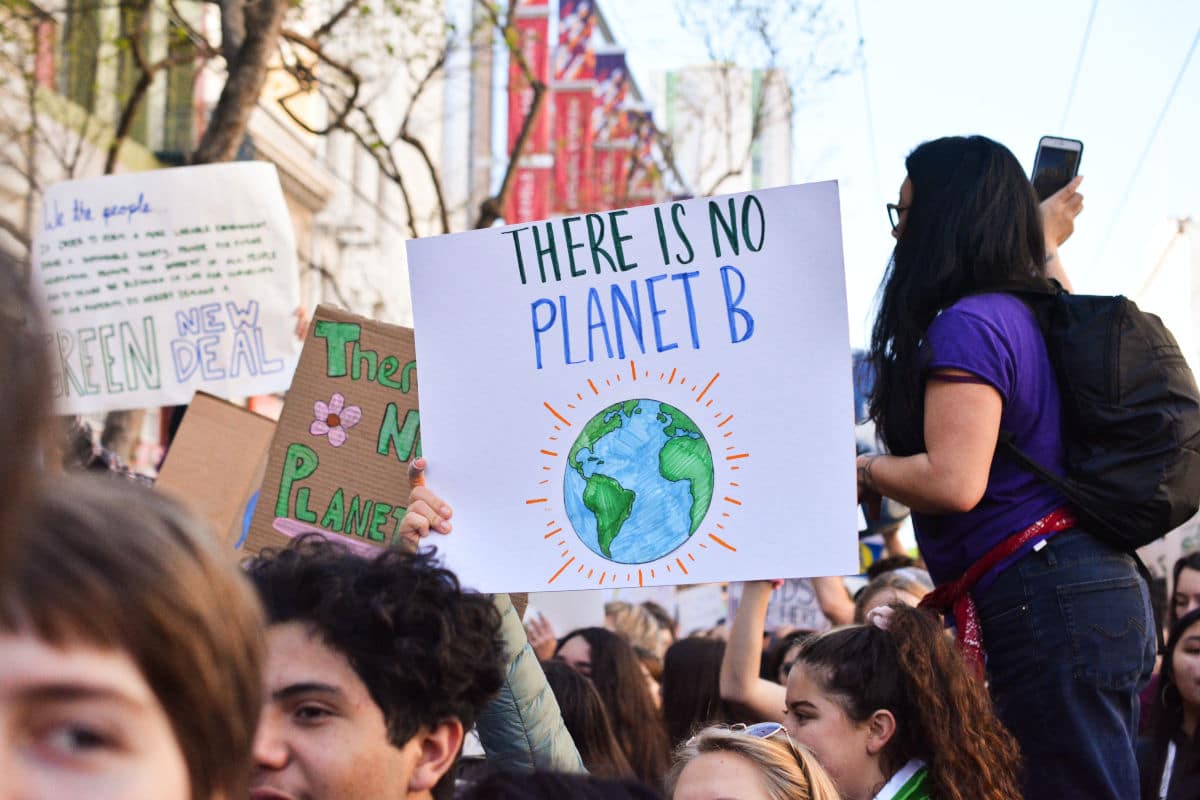
A new report from the IPCC, the UN’s climate panel, urges humanity to act.
This autumn, the sixth climate report of the Intergovernmental Panel on Climate Change (IPCC) of the United Nations. This is written by three working groups. The first working group, which deals with the scientific background of climate change, released its unpromising findings last summer. Today it was the turn of Working group II, which focuses on the impact of climate change on people and nature. A small selection of what can be read in this report†
‘Almost irreversible’
In terms of weather and climate, there have been more and larger outliers in terms of heat, heavy rainfall, drought, etc., reports Werkgroep II. More than in the previous IPCC report, from 2014, those changes are attributed to human-induced climate change.
The consequences of these outliers are, for example, the bleaching and death of coral, tree deaths, and higher death rates among people as a result of the heat. The report is less certain about the latter. The same applies to the claim that tropical storms hit us harder and harder as a result of higher sea levels and heavier rainfall.
Biodiversity is also suffering from climate change, the report continues. “Approximately half of the species viewed globally have shifted toward the poles or, on land, to higher elevations.” In addition, hundreds of species have disappeared locally and major deaths have been reported, both on land and in the sea.
Furthermore, as a result of climate change, the permafrost – subsoil that normally remains frozen – is thawing in places, and glaciers are retreating. Changes that the IPCC report characterizes as “almost irreversible”.
Wealthy Diseases
In terms of human impacts, climate change reduces food and water security. People in Africa, Asia, Central and South America, and the polar regions have been particularly affected. And “roughly half of the world’s population experiences severe water scarcity for at least part of the year.” However, this scarcity is only partly attributable to climate change.
Apart from hunger and thirst, the report mentions all kinds of other diseases that are rampant due to climate change. Diseases transmitted by mosquitoes and other animals are more common because the range of the carriers has increased, or because the carriers give birth to more offspring. Diseases that jump from animals to humans – such as Covid – are occurring in more areas. The fact that people are exposed to more smoke (from forest fires), dust in the atmosphere, and substances that cause allergic reactions also leads to health problems.
Few bright spots
The report focuses specifically on cities, where more than half of the world’s population now lives. There, heat waves and air pollution hit even harder. Poorer urban residents are particularly affected by these and other negative effects of climate change.
Now there are also areas where climate change is having a positive economic impact. There, a higher temperature results in lower energy consumption or more income from tourism. There are also areas where climate change has increased agricultural yields. But in general you have to look for such bright spots with a lantern in the report.
It is especially worrying that the areas where things are not going great anyway, according to the Working Group, are being hit the hardest. Think of countries where there is a lot of poverty, where the government does not have its affairs in order, or where armed conflicts are fought. Or all three.
1.5 degrees
And can the tide be turned? Well, if we can limit warming to 1.5 degrees (a big ‘if’), that would “decrease the predicted losses and damage, but not prevent them all”.
If the temperature rises by more than 1.5 degrees, it will get a lot worse on all fronts. More species at risk of extinction, floods cause more damage, there is even less available water, food security is getting worse… And even if we only temporarily get over that 1.5 degrees temperature increase, some consequences will be irreversible.
As for adjustments that we can make to better cope with climate change, this is largely about managing too much or too little water. Think of dikes, irrigation systems, and so on. But, the report warns, many of the ways to tackle water-related problems become less effective as temperatures rise.
‘No room for doubt’
All in all, unsurprisingly, a rather depressing report. In addition, it does not appear that a handful of doomsayers pushed their ideas through when no one was looking. The report has 270 authors, a further 675 people contributed to the text, more than 60,000 comments were processed, and the outcome was the subject of a two-week meeting between representatives of the nearly 200 members of the United Nations. They gave their agreement last Sunday, so that the result could be announced today.
And now? Ensuring that the temperature does not rise further than 1.5 degrees, while ensuring that all areas at risk can better protect themselves against the consequences of climate change. “The scientific evidence leaves no room for doubt,” said Hans-Otto Pörtner, co-chair of the working group. “Climate change threatens humanity and the health of the planet. If we wait any longer with a global, focused approach, we will miss our opportunity to ensure a livable future.”
The report itself, the technical summary and the executive summary are download here† Working group IIIwhich deals with climate change mitigation, is expected to publish its findings in April 2022.
Source material:
†Climate Change 2022: Impacts, Adaptation and Vulnerability” – IPCC Work Group II
Image at the top of this article: Li-An Lim via Unsplash